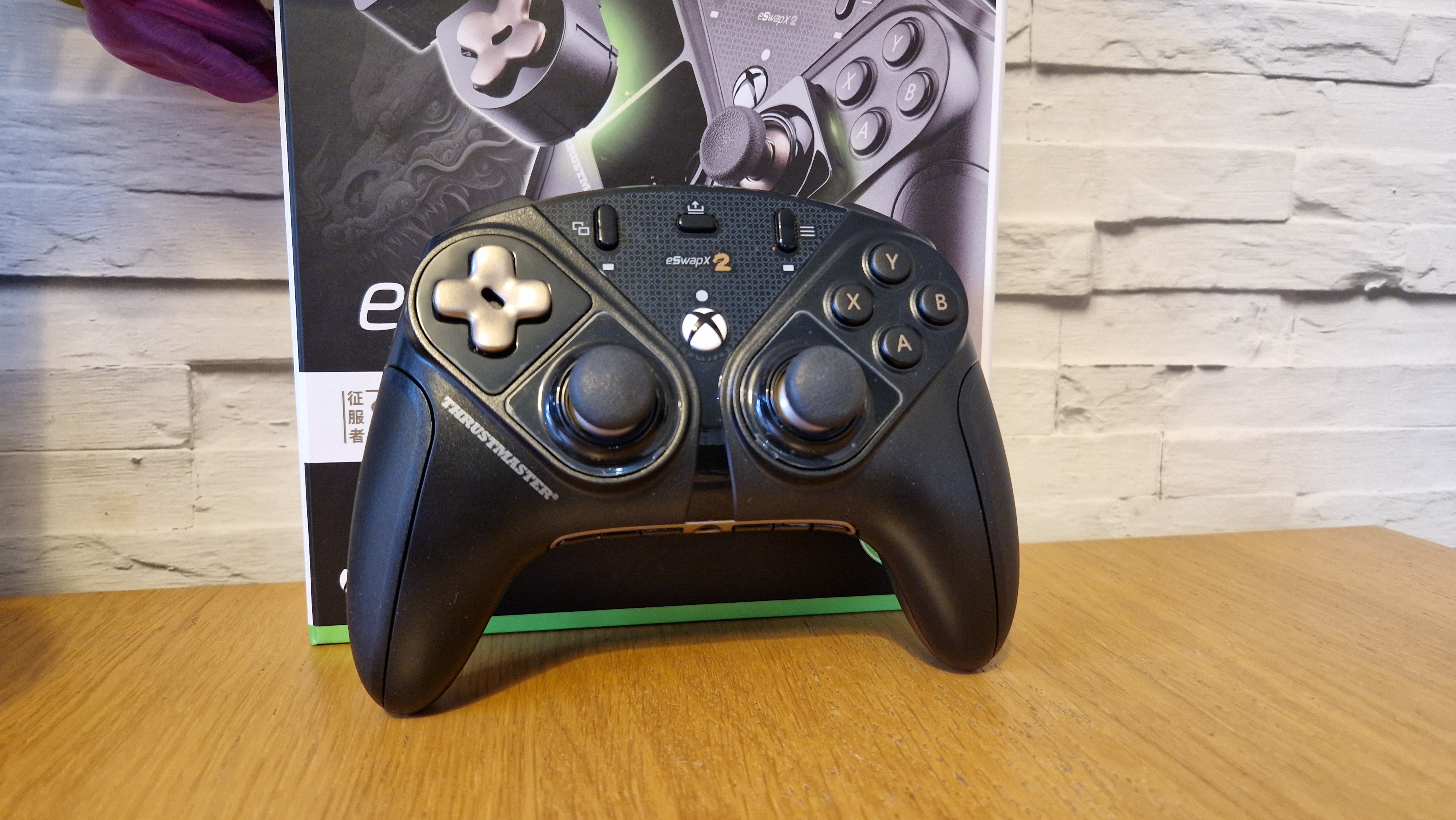TechRadar Verdict
The Thrustmaster eSwap X2 controller is an excellent gamepad in and of itself, featuring high-quality modules, satisfying buttons, and a host of customization options. Compared to its predecessor, though, the improvements are slight and it would have been nice to see some more ambition.
Pros
- +
Excellent modular design offers superb flexibility
- +
Satisfying and immediate actuation on all buttons
- +
Robust and solid build quality
Cons
- -
Only slight enhancements on the previous version
- -
Still not wireless
Why you can trust TechRadar
The Thrustmaster eSwap X2 controller comes to replace the original eSwap X Pro gamepad and offers the same level of excellence - but only with subtle upgrades. These enhancements and improvements are more akin to quality-of-life changes rather than an overhaul.
Almost all of these are welcome, affecting the type of wired connectivity, button improvements, and enhanced performance. However, they are simultaneously very safe moves. Part of me wishes that Thrustmaster had been a little more adventurous with this update, but there’s also value in the ‘if it ain’t broke, don’t fix it’ approach that can be applied here too as I thought the eSwap X Pro that came before this was excellent (when I review it for our sister publication GamesRadar) and it has also found a home in the competitive and pro player audiences.
All things considered, though, the X2 is a superb Xbox controller and, by default having replaced its predecessor, now becomes one of the best modular Xbox and PC controllers on the market - but does it warrant its $169.99 / £169.99 (about AU$325) price tag? Let’s find out.
Thrustmaster eSwap X2 review - Design & features
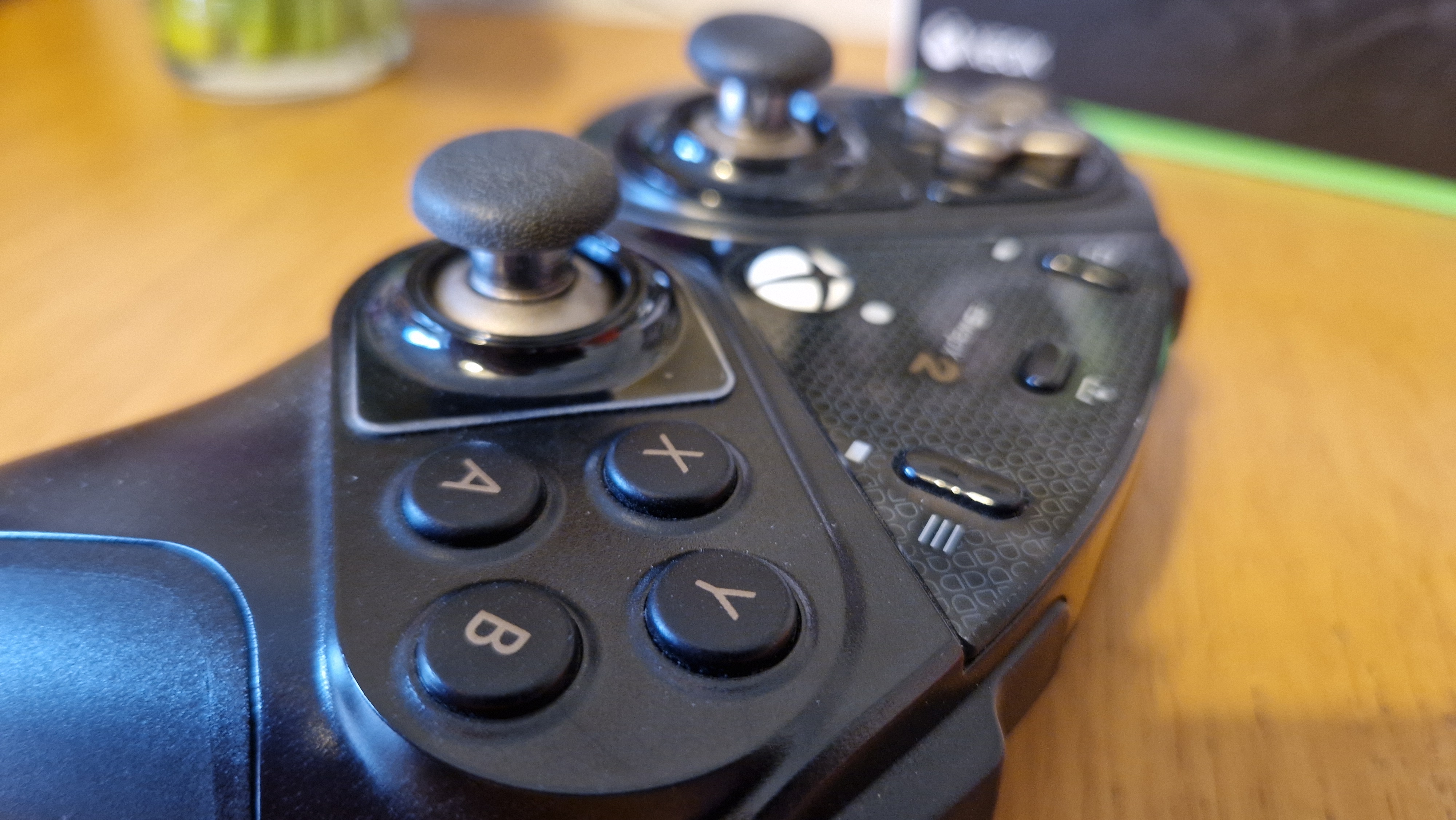
The overall design of the X2 is almost identical to the original Thrustmaster eSwap X Pro. It retains the same form factor of a chunky gamepad that feels solid and weighty in the hands.
Coming in at 10.5oz / 300g, it’s a bit lighter than the Xbox Elite Wireless Controller Series 2 (12.2oz / 345g). The shapes are slightly different of course, but the X2’s overall dimensions also mean it comes in slightly smaller than the Elite Series 2 - it measures 6.3in / 160mm x 4.7in / 120mm x 2.4in / 60mm (WxDxH). Despite this, it does feel very chunky and will take more getting used to for those with smaller hands. However, this should not put those folks off - I have small hands and use this controller very happily and easily, it just requires a slight change to how you navigate a controller with your digits, and the required alteration to muscle memory.
The benefit of this weight, however, is that it’s a design that inspires confidence. It’s sturdy, and can easily survive a drop, with every part feeling secure and fixed well in place.
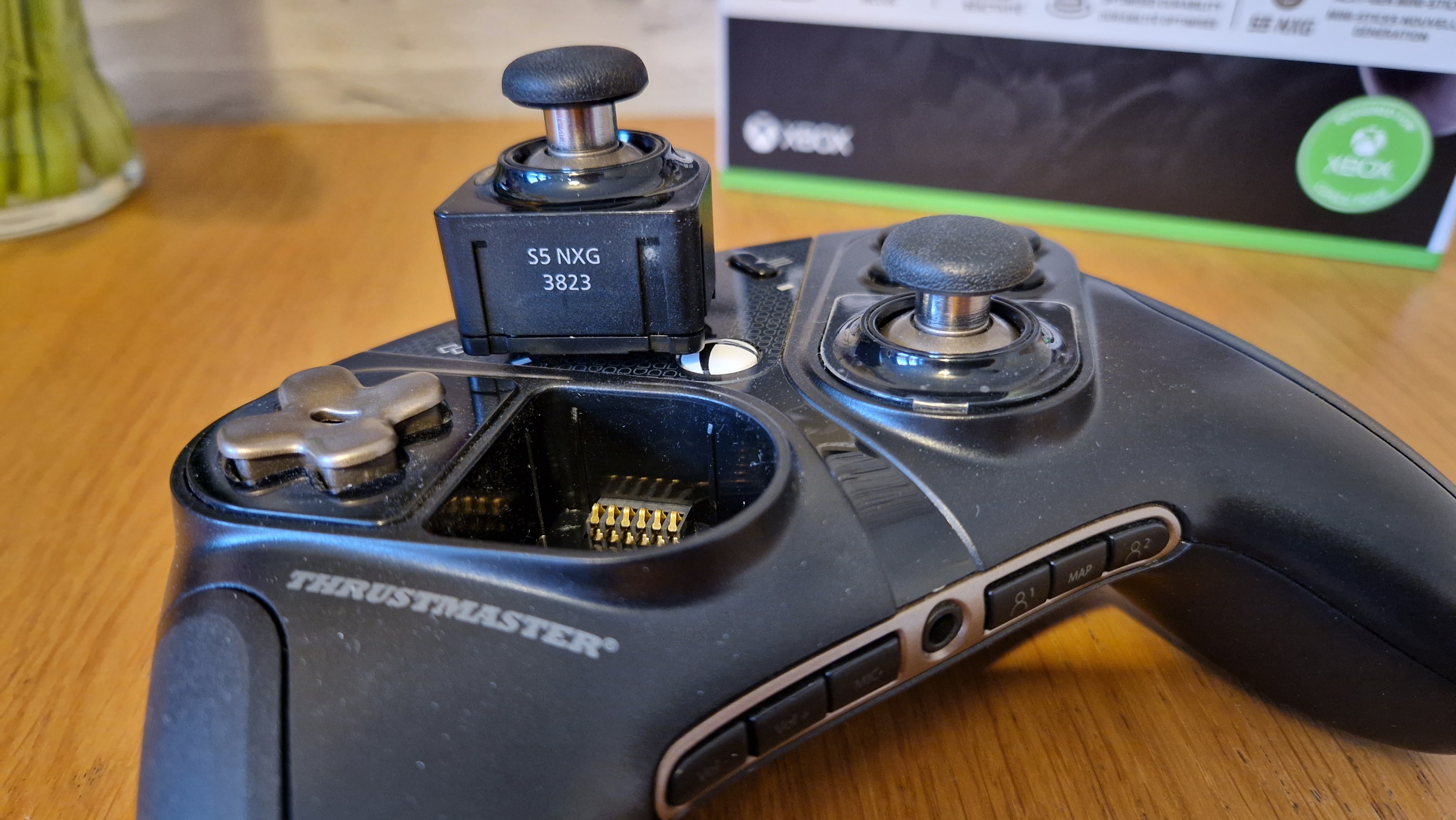
The modular system is the star of the design show, however, and remains an excellent feature for both versatility and accessibility. The ability to easily swap out modules to change the pad from asymmetrical to symmetrical in a flash is easy and means that it caters to different game types, playstyles, and preferences.
In terms of buttons, the standard Xbox layout is present, but with the same augmentations as seen on the original eSwap X Pro. Both triggers’ travel distance can be changed with the flick of a switch on the rear, there are six front-facing buttons (three for audio controls, three for button profiles), and there are view, menu, share, and Xbox buttons on the front. The face buttons (A, B, X, Y), both shoulder buttons (LB, RB), and the D-pad are all incredibly satisfying to press, with super-short actuation distances that prompt speedy response and input times.
Like its predecessor, the X2 is a wired controller, albeit this time with a more up-to-date USB-C connection. The lack of wireless connectivity does sting in the year 2024, though, despite the reduction in latency that an upgraded USB-C tethered connection offers. At least the cable is friendly for most setups being 9.8ft / 3m long.
Thrustmaster eSwap X2 review - Performance
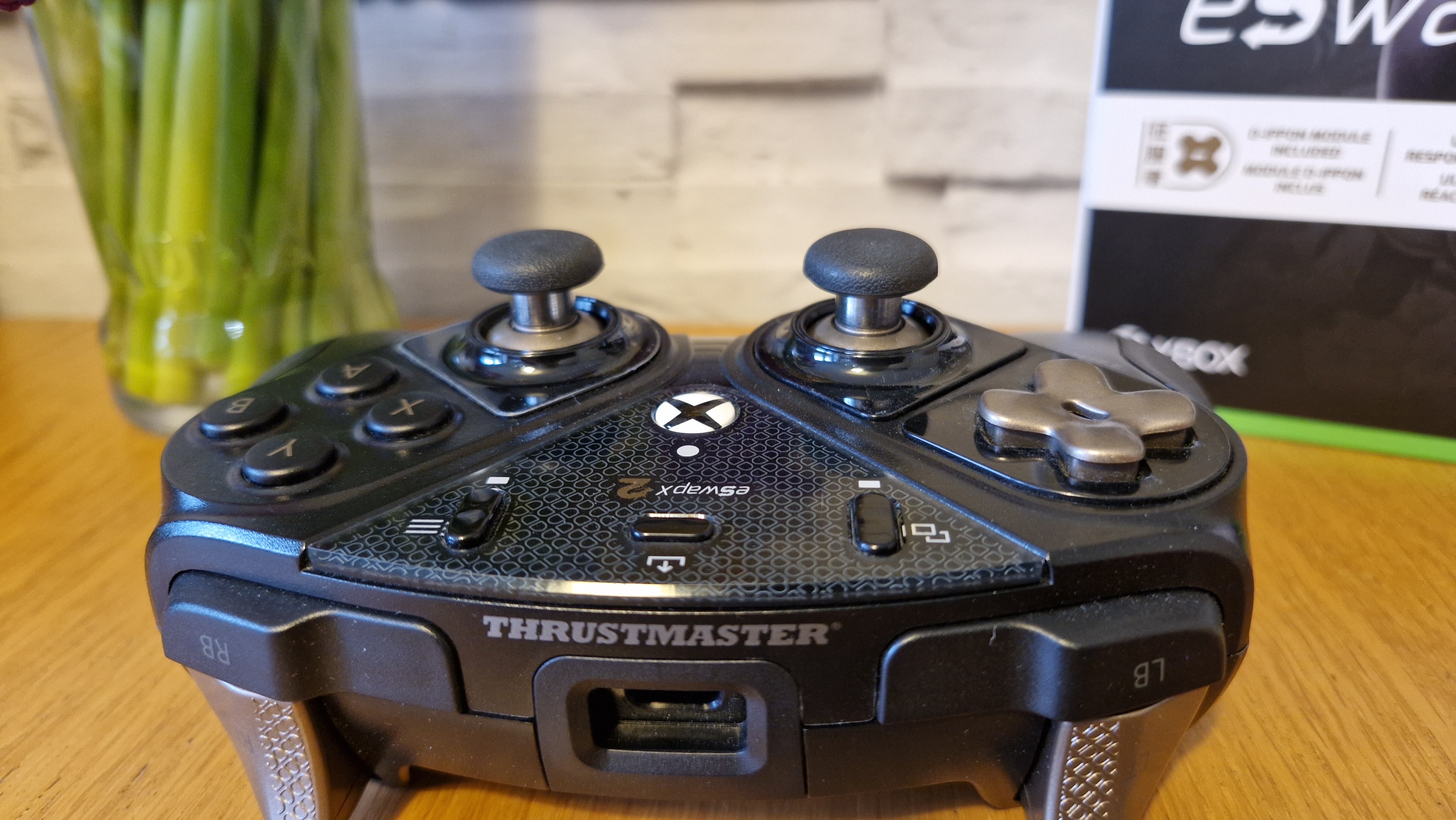
The X2 retains all the performance prowess that was offered by the eSwap X Pro, and tweaks it slightly to push things a little further. However, being only slight tweaks, some small gripes remain present.
Using the controller as a daily driver for any game is a joy. The mechanical button presses are still exquisite. From the D-pad to the face buttons and shoulder buttons, everything has a fantastic feel with actuation distances of just 0.01” / 0.3mm on offer. The D-pad is particularly fantastic in this regard, while the overall improvement to actuation is a subtle but noticeable step up from the predecessor.
The S5 NXG mini thumbsticks are superb to use too, allowing for both smooth and slick movement changes or steering, as well as precise movements when lining up jumps and swift changes of direction in Ori and the Will of the Wisps or aiming down the sights in Halo 2: Anniversary or Gears of War 2.
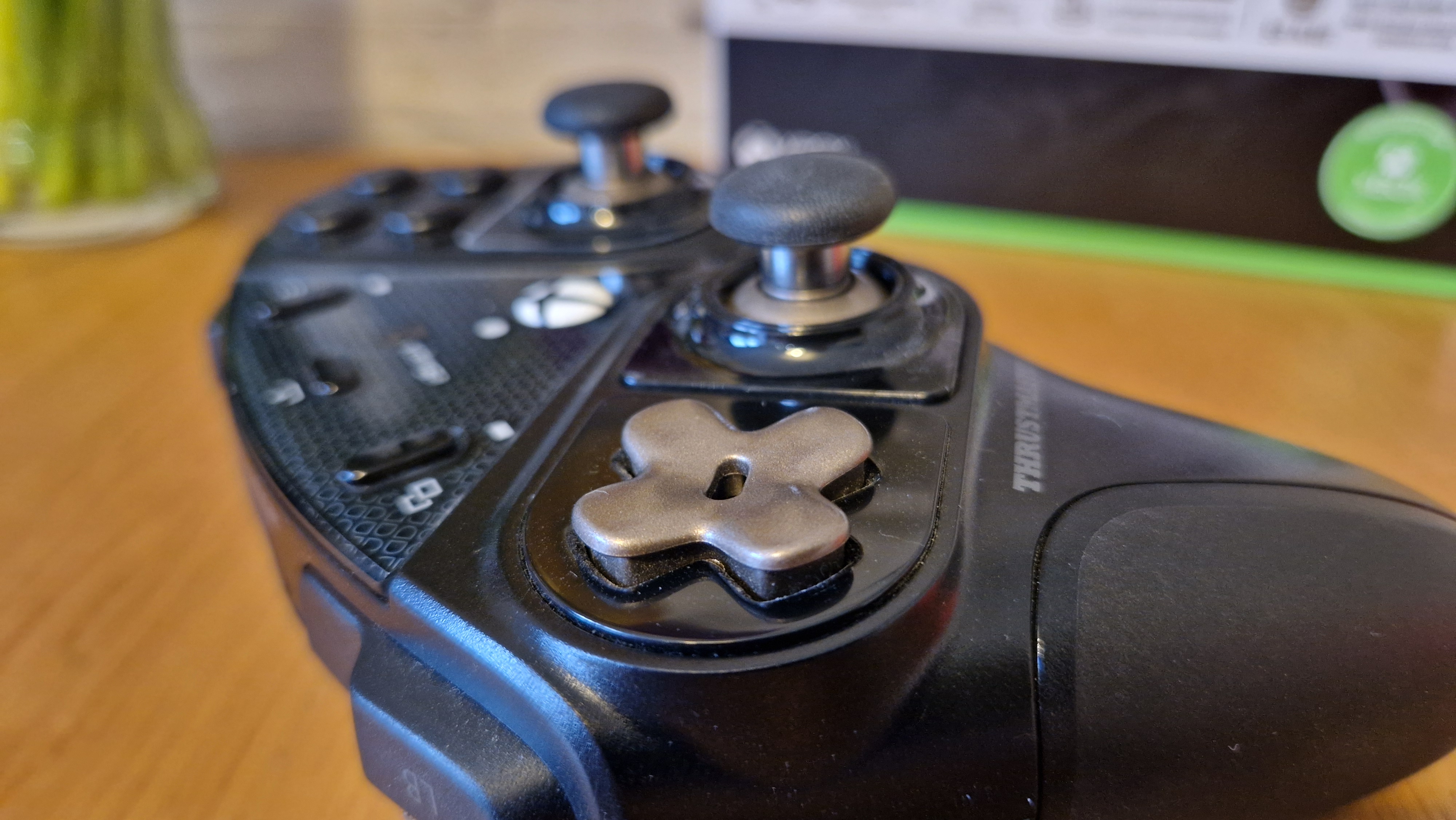
The original controller had some strangely intense vibrations by default which I didn’t like at all. It was particularly off-putting in racing games and made it feel like the controller was trying to run away from your hands with a million tiny feet. This, at least straight out of the box, has been addressed, and a more traditional yet deeply satisfying rumble is present.
The ThrustmapperX app remains an excellent companion too, enabling you to customize and choose your button mappings and profiles to optimize your experience with the controller, both on PC and Xbox.
But there are some drawbacks. The programmable back buttons remain less intuitive than competing pads with their more user-friendly paddles like on the Victrix Pro BFG and the Razer Wolverine series. My smaller hands can barely reach the back buttons at all, and their positioning is too central to be natural. The controller grips and removable panels are also still sub-par - a grippy, textured effect would have been a great addition.
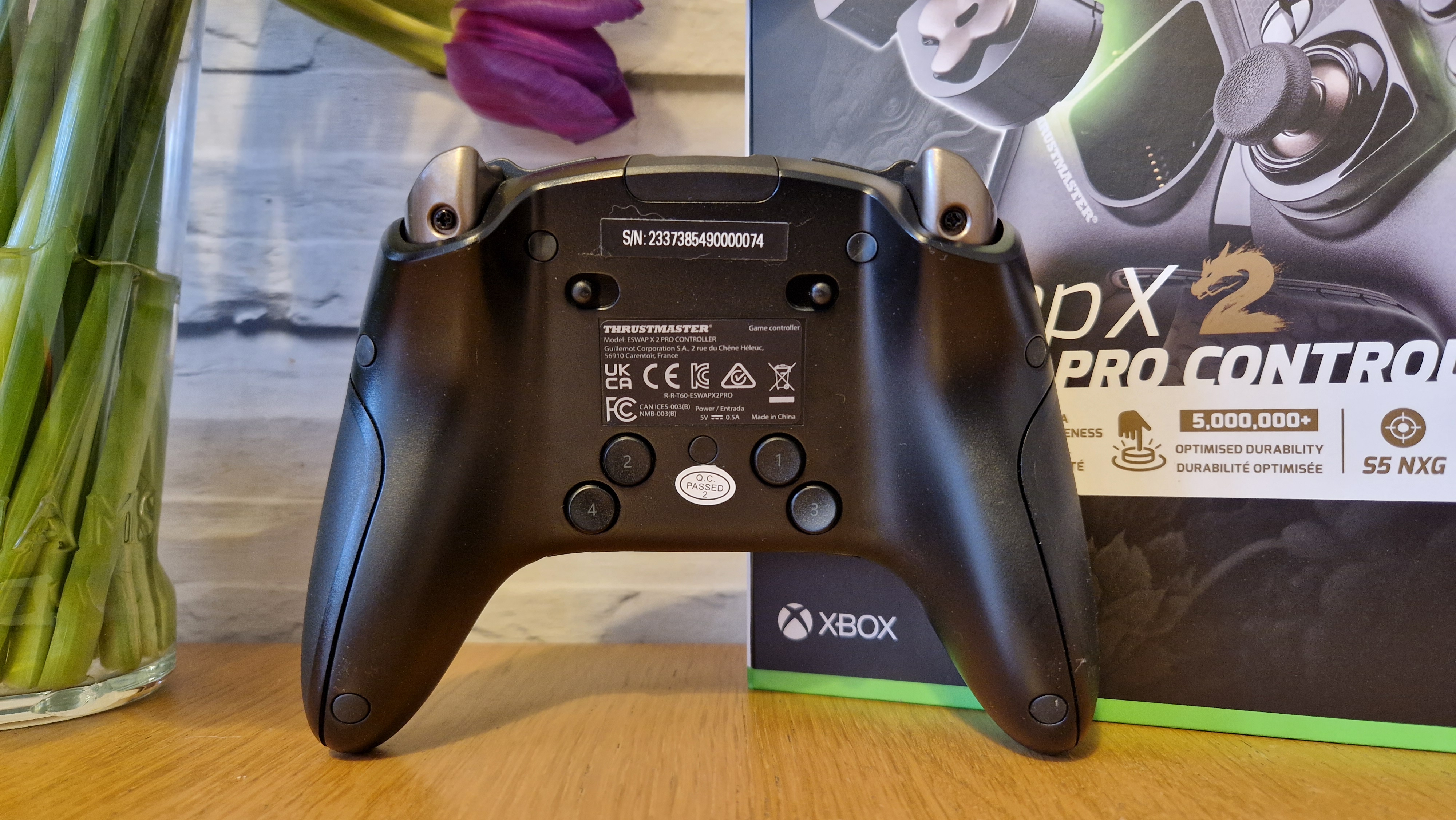
Also, while maintaining a wired connection is a contributing factor for the pad’s positioning as something for competition and fighting games, overall it still feels like a drawback in the year 2024. Having a long cable drape over your living room is a pain, and there’s always a fear of it being a trip hazard or putting strain on the pad or the console.
Gripes aside, this is still a superb controller - the modular design is incredible, the buttons are a genuine joy to use, and the level of customization and flexibility on offer with the pad is wonderful. I can’t imagine playing on Xbox or PC any other way.
Should I buy the Thrustmaster eSwap X2?
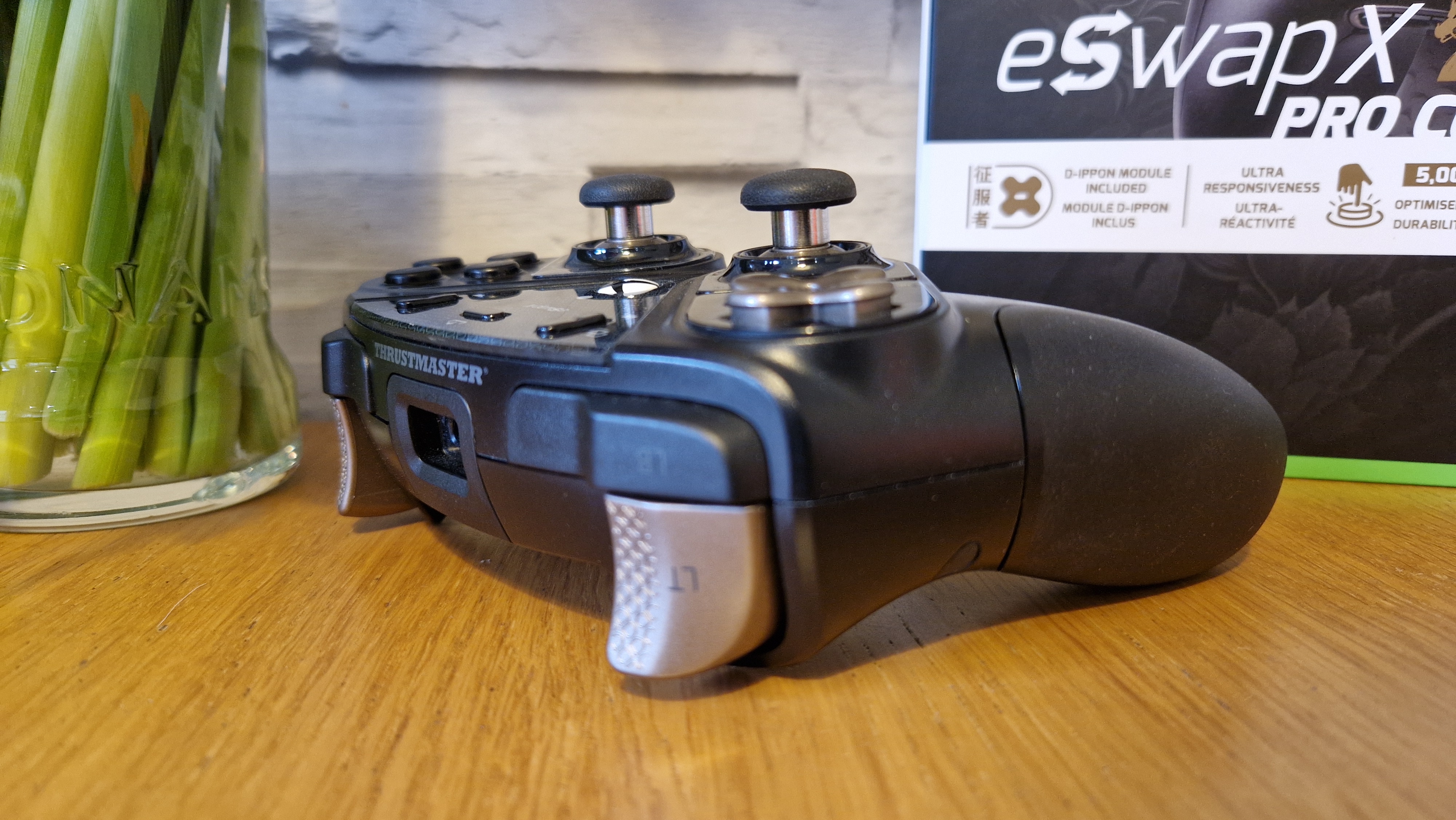
The eSwap X2 is a tremendous Xbox and PC controller. While the changes in this second iteration are very much just quality-of-life, rather than a big overhaul, it’s a quality bit of kit. Thrustmaster has not been shy about this, representing small upgrades that retain the features that its audience most values while improving bits and pieces slightly, and meeting EU standards.
Despite this, part of me still wishes Thrustmaster had been a bit bolder in the revisions and went further. Perhaps better positioning and ergonomics of back buttons, a tighter design form, and wireless capacity, would all be welcome, for example.
It’s worth noting that while the original eSwap X Pro pad remains available the value proposition of the X2 is slightly compromised - the eSwap X Pro is still an excellent premium pad in its own right. Nonetheless, if you’re looking for a top Xbox or PC controller, or looking for a controller that can adapt to your accessibility needs a little, and you don’t mind being tethered then this is absolutely worth your interest and your money.
Buy it if...
You’re looking for a new premium Xbox and PC controller
The Thrustmaster eSwap X2 offers all the bells and whistles that a premium controller should, from modular features to some of the best buttons going.
You have multiple playstyles or play a host of different games
With the amount of options and layouts on offer with the X2, this is the controller to get if you value having different setups depending on what you’re playing.
Don't buy it if...
If you really want to cut the cord
Remaining wired is one of the eSwap X2’s biggest weaknesses so if you do want a pro or premium controller without the fuss of remaining tethered, then you’ll need to look elsewhere.
Thrustmaster eSwap X2 review - How we tested
I spent two weeks with the Thrustmaster eSwap X2 and tested it on both PC and Xbox Series X. I used the controller with a bunch of Steam Next Fest demos and tested the pad with a chunk of Forza Horizon 4, Gears of War 2, and Halo 2 (I'm revisiting classics I missed the first time around, don’t judge me), while also going deep into Ori and Will of Wisps. I thoroughly explored all the available settings in the ThrustmapperX app to tinker with the pad, while also altering the modular layout - mainly to be used as a symmetrical controller but also trying the Thrustmaster eSwap X racing module.
If you’re looking for more accessories then check out our guides to the best monitors for Xbox Series X and the best Xbox Series X headsets.

Rob is the Managing Editor of TechRadar Gaming, a video games journalist, critic, editor, and writer, and has years of experience gained from multiple publications. Prior to being TechRadar Gaming's Managing Editor, he was TRG's Deputy Editor, and a longstanding member of GamesRadar+, being the Commissioning Editor for Hardware there for years, while also squeezing in a short stint as Gaming Editor at WePC just before joining TechRadar Gaming. He is also a writer on tech, gaming hardware, and video games but also gardens and landscapes, and has written about the virtual landscapes of games for years.
